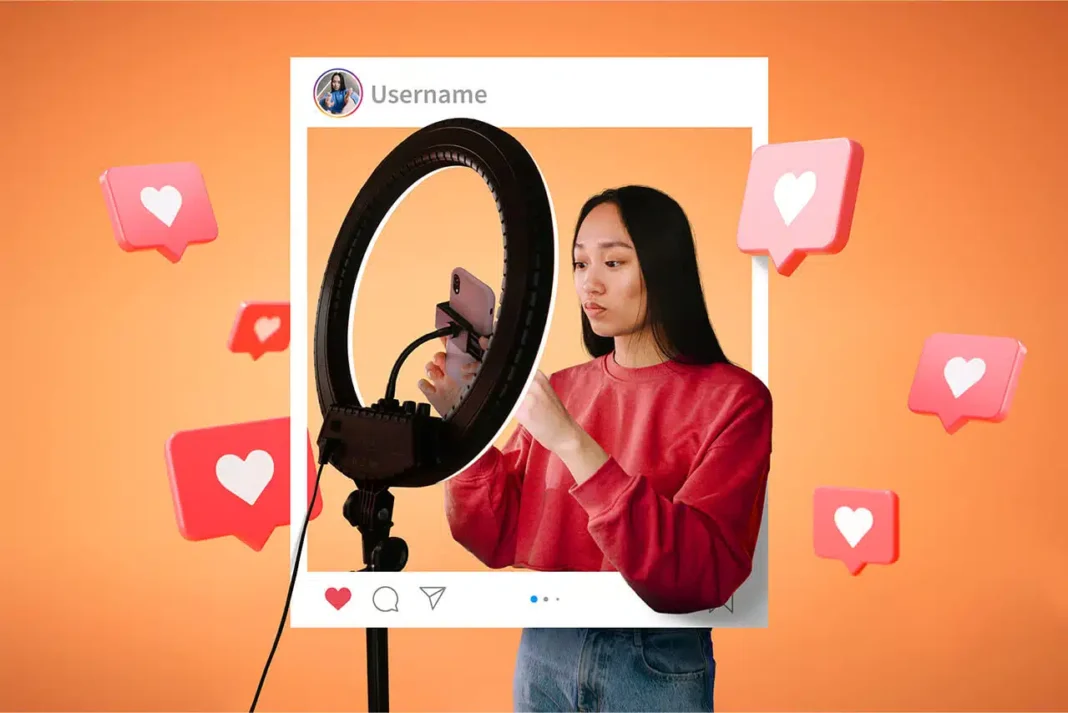In the age of social media, the concepts of beauty, visibility, and worth have become deeply intertwined. Today, influencers shape not only fashion or lifestyle but also perceptions of body image, self-worth, and success. A large part of society views them as figures who impose perfection. They are often criticized for negatively influencing young people and promoting an unrealistic sense of aesthetics.
Yet, when we turn the coin over, we realize that these individuals we so often criticize have also been shaped within the same system. Years of exposure to comments about their bodies, their worth being reduced to follower counts, and the demand for constant performance have strengthened a belief they have come to internalize:
“To be valuable, I must appear flawless.”
Influencers: The Influencers Or The Influenced?
With the evolution of mass communication, the culture of approval and “likes” has created a deep psychological transformation. A photo’s number of likes now represents not only visibility but one’s very sense of self.
Although influencers seem to stand at the center of this system, they are, in fact, among its primary subjects. They feel compelled to align themselves with social expectations, turning their bodies into a form of social capital.
In psychological literature, Festinger’s Social Comparison Theory suggests that individuals evaluate themselves by comparing to others. This mechanism operates on social media constantly, though invisibly. Seeing other people’s “perfect” lives and bodies can make individuals question their own realities.
The same process applies to influencers themselves. Because they live under constant public scrutiny, they become even more vulnerable to others’ judgments. Each post they share is not merely an aesthetic choice but an implicit answer to an internal question:
“Am I enough?”
The New Form Of Perfection: Digital Performance
Research indicates that spending long periods on social media is particularly associated with body dissatisfaction, feelings of inadequacy, and self-worth anxiety among young adults (Fardouly et al., 2015; Holland & Tiggemann, 2016).
Within this framework, the effect of such dissatisfaction on self-worth is likely to be twice as strong for influencers. They must remain visible not only to be liked but also to sustain their existence in the digital sphere. A single filter, a change in lighting, or a critical comment can alter their sense of identity.
Perfection has thus become not an aesthetic concern, but a strategy for existence.
While society glorifies the perfect body, the influencer must embody that perfection. Then society, in turn, chases that image. This reciprocal dynamic creates a self-sustaining loop:
Society shapes the influencer, and the influencer shapes society.
Ultimately, both sides experience different faces of the same pressure.
From Criticism To Understanding
This reality reveals that the problem cannot be solved by assigning blame to one side. The issue does not lie within individuals but within a value system that operates through validation and approval.
While influencers may seem to reproduce social ideals, they are, in truth, prisoners of those very ideals. When criticism gives way to understanding, the invisible dynamics of the system become clearer. The culture of perfection is not only about appearance; it is also a distortion of how we define self-worth.
Real change begins with awareness of this cycle.
-
On a societal level, it means allowing diverse bodies, ages, and identities to be seen.
-
On an individual level, it means recognizing the limits of validation mechanisms on social media.
A system that measures fulfillment not by the number of likes but by inner satisfaction can free both users and content creators alike.
Conclusion
When we look only from one side of the coin, we often hear the claim that “influencers negatively affect young people.”
But when we look at the other side, we see that those deemed “guilty” are also, in many ways, the victims. Influencers grow up in the same society we do, feeling the same pressures as many young people — only in a more visible form.
The societal expectation of perfection draws all of us in, though in different ways.
The solution is neither to abandon social media nor to strive for flawlessness. The solution lies in redefining what is real.
It is not perfection, but our humanity, that truly holds value.


